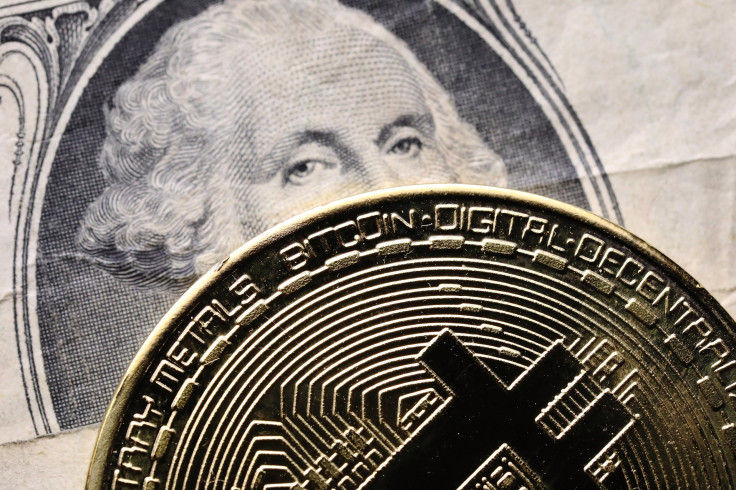How Millennial Finance Will Make The Legacy Banking System Irrelevant
Millennials are often looked to as bellwethers of contemporary society. Not since the baby boomers has a generation been so widely analyzed – and criticized – as a harbinger of things to come. And it’s no secret that we do things our own way. From careers to fashion to music, millennials are comfortable rocking the boat. Now, with governments and entire economies buckling under the stress of a global pandemic, we are ready to reshape the financial system – using revolutionary technologies such as cryptocurrencies.
Among this generation’s targets for disruption, finance looms large. Millennials hate banks and other traditional financial services. More than two-thirds of us would rather visit the dentist than speak to our bank. Almost all would drop our bank based on the quality of its app, and a full third of us say we won’t need a bank at all in the future. Institutions that fail to bridge the generational divide face a difficult road ahead to say the least.
Banks haven’t ingratiated themselves with the under-40 crowd. Chase recently had to apologize for tweeting that millennials’ financial precariousness was due to lifestyle choices like taking cabs and going to coffee shops. This attitude is part of a broad stereotype of millennial laziness and entitlement – propagated by the very people who financed the comfortable lives they enjoy by taking from our future.
A lost generation?
I’m referring, of course, to boomers. They, and the institutions they’ve promoted for the past 30 years, are the authors of our current predicament. Over this time they have deregulated the financial system, collapsed the economy and hollowed out the middle class. They have saddled us with huge amounts of non-dischargeable student debt to pay tuition that has risen from less than $10,000 to more than $23,000 (inflation-adjusted) since 1980. The cause? To pay for ever-swelling ranks of boomer administrators.
Under the leadership of the boomers, America has seen the industrial-scale transfer of wealth from the young to the old – Americans under 50 today are much poorer than those of the same age were 30 years ago, while those over 65 are wealthier. Meanwhile, Social Security rewards boomers handsomely, while millennials can expect to take out less than they put in. With the deck so stacked against us, no matter how well we play, it seems we can’t win.
So we’re changing the rules. Contrary to stereotypes, millennials are turning out to be savvy, resilient, and determined when it comes to money. Bank of America recently reported that millennials started saving at a younger age than either boomers or Gen X, and that a quarter already have at least $100,000 put away. Notwithstanding the dismissive accusations of our debt-free elders, millennials don’t just complain. Instead we are reshaping finance with new technologies and new ideas – and in the process, overhauling the way money works altogether.
We’re not stepping up, we’re stepping over. Welcome to the world of millennial finance.
New technologies for a new financial infrastructure
Millennial finance is premised on the ability of new technologies to fundamentally and permanently reshape how the money system operates in both form and function. This isn’t just theory. It’s happening now, and millennials are leading the charge. While expanding platforms like Robinhood have already demonstrated the potency of this movement, they’re the tip of the iceberg.

Millennials’ direct experience with financial setbacks has affected us deeply and is one of the reasons we have such a strong collective social conscience. Our desire to make finance more equitable is one of the reasons we have turned to crypto in large numbers. It’s no surprise that blockchains, which are fully public and whose code ensures they treat everyone the same, appeal to us.
Cryptocurrencies are strongly correlated to youth: 22% of all crypto mining took place on college campuses in 2019. Millennials are three times more likely than older people to invest in crypto, and 60% of us believe crypto will be widely accepted in the next ten years. Young adults are the driving force behind a new financial system that’s already cropping up and expanding in ways that are impossible to ignore.
Millennials are using crypto to drive the growth of decentralized finance or “DeFi.” They were among the first adopters of Bitcoin, which in many ways launched the movement for a radically transparent economic system. Platforms including Maker DAO and Compound have gained significant traction in the past couple of years by letting people earn interest on savings and take out loans through tools such as collateralized debt positions (CDPs). Crucially, access to such applications is decentralized and not controlled by self-interested and self-dealing middlemen.
Millennial finance is changing venture capital too. The success of Seedinvest and Republic shows millennials’ appetite to invest in privately held companies. And a truly novel concept – the decentralized autonomous organization or DAO – is taking flight. DAOs have the potential to become the new venture firms, allowing people to join permissionlessly and get returns on their investments. OpenLaw recently launched the first “legal DAO” for distributed VC investments.
As the first digital-native generation, millennials are driving change with fintech in the form of decentralized finance. The systems we were born into have failed millennials. Our only path out of our current predicaments is one we chart ourselves -- and we are doing just that. By combining real financial competence with technological innovation and a radically different view of how finance should work, we will reform the system from bottom to top. The institutions that have held us back can either get on board or get out of the way.
(Matt Luongo is the CEO of Thesis, a cryptocurrency venture production studio that includes Keep, a project helping bitcoin holders access decentralized finance apps.)
© Copyright IBTimes 2024. All rights reserved.





















